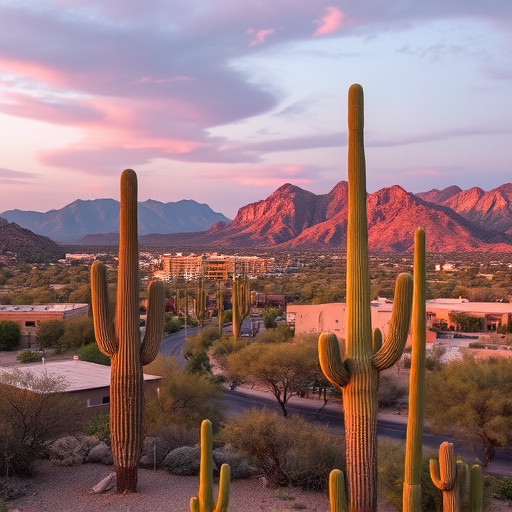Zoning laws play a pivotal role in shaping Tucson's real estate landscape, regulating land use and maintaining neighborhood character. Tucson's zoning map categorizes areas into residential (R), commercial (C), industrial (I), and mixed-use (MU) districts, each with specific regulations on density, building heights, and permitted uses. Understanding these zoning guidelines is crucial for investors, developers, and buyers/sellers to make informed decisions, avoid legal issues, and ensure successful projects in Tucson's competitive real estate market.
In the dynamic world of Tucson real estate, understanding local zoning laws is crucial for investors, developers, and property owners alike. These regulations shape the city’s landscape, dictating land usage, building designs, and development potential. This comprehensive guide delves into Tucson’s unique zoning framework, offering insights on navigating the city’s map, permit requirements, common zones, and their collective impact on the real estate market. By demystifying these laws, we empower individuals to make informed decisions in Tucson’s thriving property scene.
- What Are Zoning Laws and Why Do They Matter in Tucson Real Estate?
- Navigating Tucson's Zoning Map and District Designations
- Permits and Licenses: Understanding Requirements for Development
- Common Zones and Their Impact on Property Usage in Tucson
What Are Zoning Laws and Why Do They Matter in Tucson Real Estate?
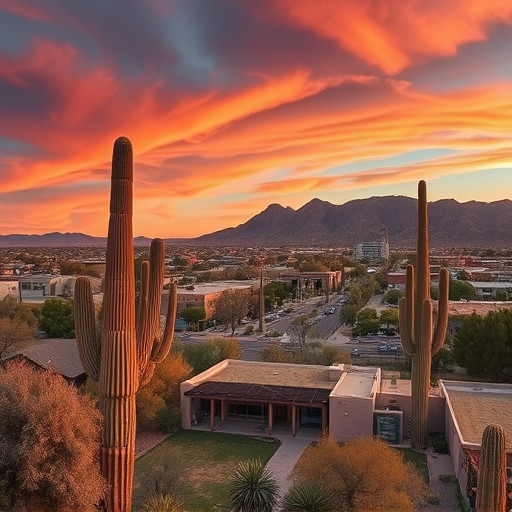
Zoning laws are regulations that divide a city or town into specific districts, each with designated uses and restrictions. These laws play a pivotal role in shaping the landscape of Tucson Real Estate. By defining areas for residential, commercial, industrial, and mixed-use development, zoning ensures that neighborhoods maintain their character and that structures align with surrounding properties.
For Tucson Real Estate investors and developers, understanding zoning laws is crucial for making informed decisions. Adhering to these regulations guarantees that projects are feasible and legally sound. Violating zoning laws can lead to costly legal issues, project delays, or even property forfeiture. Thus, navigating these guidelines is essential for successful real estate ventures in Tucson.
Navigating Tucson's Zoning Map and District Designations
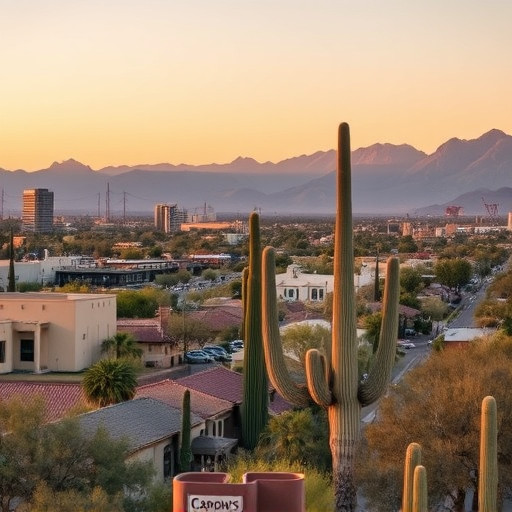
Tucson, with its diverse neighborhoods and communities, has a comprehensive zoning map that outlines specific areas for residential, commercial, industrial, and mixed-use developments. Understanding this map is crucial for both residents and real estate professionals in Tucson. Each zone is designated with unique regulations, allowing for varying levels of density, building heights, and permitted uses. For instance, single-family homes predominate in the suburban zones, while more dense apartment complexes and commercial buildings are concentrated in urban centers.
Navigating this map involves understanding district designations such as residential (R), commercial (C), industrial (I), and mixed-use (MU). Residential areas often have strict guidelines on lot sizes, building setbacks, and permitted structures, ensuring a quiet, suburban feel. Commercial districts, on the other hand, allow for higher density and a wider range of business uses, making them hubs for Tucson’s thriving real estate market. Knowing these zoning details is essential for property buyers, sellers, and developers looking to navigate the Tucson real estate scene successfully.
Permits and Licenses: Understanding Requirements for Development
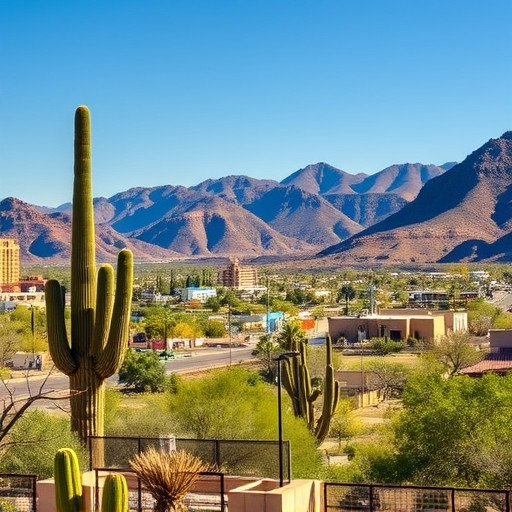
In the realm of Tucson Real Estate, navigating permits and licenses is a crucial step in any development project. These legal requirements are designed to ensure that construction activities align with local safety, health, and environmental standards. Before breaking ground, prospective developers must secure the necessary permits from relevant government authorities. This process involves submitting detailed plans outlining the proposed development, including structural designs, material specifications, and impact assessments on surrounding areas.
Understanding these requirements is essential for successful Tucson Real Estate ventures. Permits may cover various aspects such as building permits, zoning approvals, and environmental clearances. Each type of permit serves a specific purpose—from ensuring structural integrity to assessing the project’s ecological footprint. Developers who fail to obtain the required permits risk legal repercussions and potential delays in their projects, highlighting the importance of thorough understanding and compliance with local zoning laws and regulations.
Common Zones and Their Impact on Property Usage in Tucson
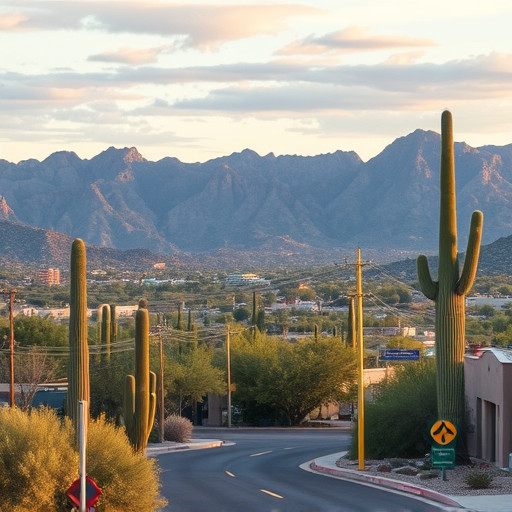
In Tucson, property usage and development are significantly shaped by its local zoning laws. The city is divided into various zones, each with specific regulations to maintain a harmonious balance between residential, commercial, and industrial areas. Common zones include Single-Family Residential (SFR), Multi-Family Residential (MFR), Commercial (COM), and Industrial (IND).
SFR zones, prevalent in Tucson’s neighborhoods, allow for single-family homes and limited business uses, fostering quiet, residential communities. MFR zones accommodate apartment complexes and similar multi-dwelling units, contributing to the city’s diverse housing options. COM zones are hubs of commercial activity, permitting businesses like retail stores and offices. Meanwhile, IND zones facilitate large-scale industrial operations, ensuring these activities are contained in designated areas. These zoning classifications directly impact Tucson Real Estate values, property development potential, and the overall character of different neighborhoods.
Understanding local zoning laws is a cornerstone of navigating Tucson Real Estate. By familiarizing yourself with the city’s mapping system, permit requirements, and common zones, you can make informed decisions about property development and usage. These regulations play a pivotal role in shaping the urban landscape, ensuring balanced growth and maintaining the unique character of Tucson’s neighborhoods. Whether you’re a developer, investor, or homeowner, comprehending these laws is essential for successful real estate ventures within this vibrant community.
